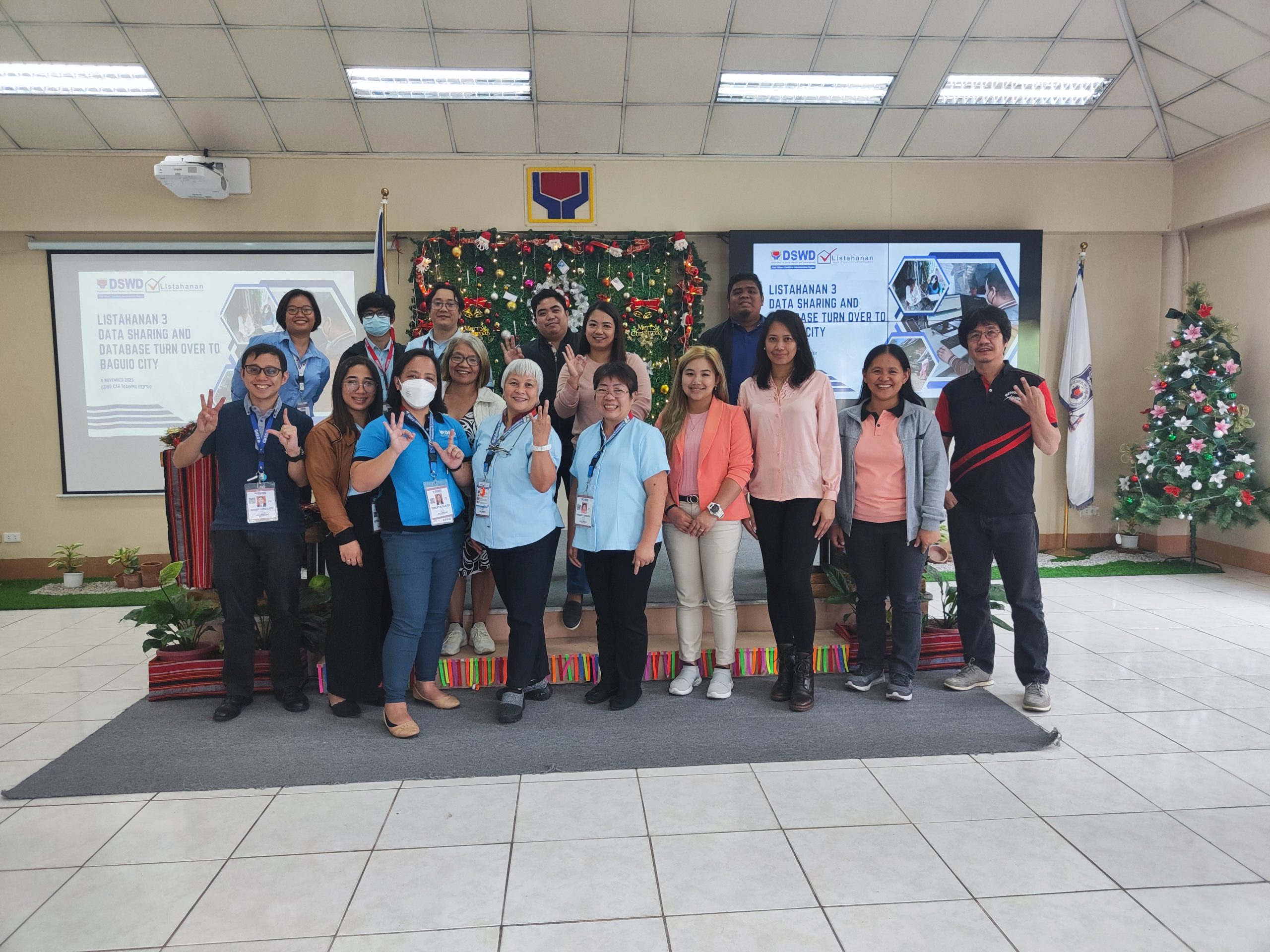
Cordillera Administrative Region – With the completion of the Listahanan 3, DSWD Field Office Cordillera Administrative Region through the National Household Targeting System for Poverty Reduction (NHTS-PR), or Listahanan has started the database turnover to Baguio City and Kalinga. This activity holds significance as it allows for the identification of households and individuals in need, facilitating accurate targeting of social welfare programs and services. This ensures that resources are directed to those who genuinely require assistance.
The turnover supports evidence-based policy planning and development by offering current data on demographic trends, poverty indicators, and other relevant socio-economic factors. With an updated database, government agencies and organizations can allocate resources more efficiently, avoiding wastage and ensuring that assistance reaches the intended beneficiaries in a timely manner.
Before coming into an agreement with the department, there is a Listahanan data sharing procedure to be followed as well as requirements to be submitted. These requirements are discussed in the Listahanan Data Sharing Guidelines. As per the latest memorandum circular regarding the data sharing, in order to secure a Data Sharing Agreement one of the requirements is to have a registered Data Protection Officer by the National Privacy Commission, along with a privacy manual on security measures. These guidelines help the end-users comply with relevant data protection laws and regulations, provide a framework for standardized data sharing process, reduce the likelihood of data breaches, leaks, or other security incidents, and also help promote transparency by outlining the purposes and conditions under which data is shared.
The conduct of data sharing orientation sessions is vital to help individuals understand the purpose, objectives, and scope of Listahanan, ensuring a clear understanding of the program’s goals and how data will be utilized. Orientation sessions also educate participants about relevant laws, regulations, and ethical standards governing data sharing. This ensures compliance with data protection and privacy requirements, reducing the risk of legal issues. By emphasizing the importance of responsible data handling practices, the orientation helps participants avoid unauthorized access, misuse, or inappropriate disclosure of sensitive information, thereby protecting the privacy of individuals. It defines the roles and responsibilities of individuals or organizations involved in data sharing, promoting accountability and minimizing confusion about who is responsible for what aspects of the process.
The turnover and data sharing orientation sessions also include lectures on Data Privacy Act. The discussion is essential to safeguard private and personal information of the assessed households. It ensures that the collection, processing, and storage of personal data adhere to ethical and legal standards, protecting people from unauthorized access, identity theft, and misuse of their confidential details. Compliance with the Data Privacy Act helps maintain trust, transparency, and accountability in handling sensitive data within the Listahanan database.
In her acceptance speech during the turnover to Baguio City, City Social Welfare Development Office (CSWDO) representative, Corallie Dulnuan extended her gratitude to the Department for providing the data which can be used for the basis of selection of beneficiaries for various social protection programs and services. During the database turnover to Kalinga, Social Welfare Officer IV (SWO IV) Janeth Puday, finds the information provided by Listahanan to be more agreeable and comprehensive as it encompasses additional data which is useful especially in identifying the indigent and poor individuals and households.
Following the turnover, DSWD FO CAR plans on conducting provincial launching, including data sharing orientations in Abra, Apayao, Ifugao, Kalinga and Mountain Province.
These orientations are vital in informing the PLGUs regarding the requirements needed to enter a Data Sharing Agreement with DSWD. Additionally, these are aimed to help organizations understand the policies, procedures, and protocols related to data sharing, emphasizes the importance of responsible data handling, and helps clarify expectations and facilitate collaboration between entities involved in the data sharing.
The Listahanan database may be accessed by national government agencies (NGAs) and other stakeholders of Social Protection as basis in identifying beneficiaries. As per the Executive Order 867 series of 2010, NGAs are encouraged to adopt Listahanan as an instrument for identifying poor households who shall be recipients of social protection programs nationwide. On the other hand, Philippines Statistics Association (PSA) is mandated to provide “general-purpose statistics”, and to disclose the information to the aggregate level. #DSWD-CAR, SOCIAL MARKETING UNIT, Joanna Marie M. Caponpon-Apostol, Administrative Assistant III




